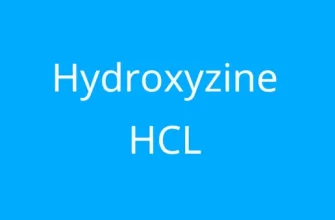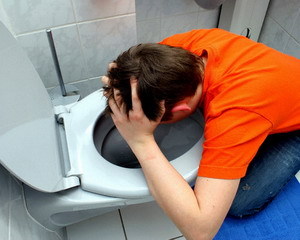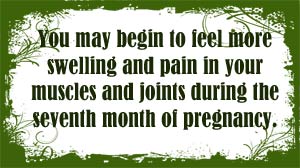Throwing up bile, often a yellow or green fluid, can be alarming. While it’s not always a sign of a severe condition, understanding why it happens and how to address it can provide relief and prevent recurrence.
Causes of Vomiting Bile
| Cause | Percentage (%) |
|---|---|
| Empty Stomach | 35% |
| Gastroenteritis | 25% |
| Gastrointestinal Blockage | 20% |
| Bile Reflux | 15% |
| Alcohol Consumption | 5% |
This chart highlights the primary causes of vomiting bile, emphasizing the prevalence of an empty stomach as the leading cause at 35%.
What is Bile?
Bile is a digestive fluid produced by the liver and stored in the gallbladder. It helps break down fats during digestion. When vomiting bile occurs, it often means the stomach is empty, or there’s an underlying digestive issue.
Common Causes of Vomiting Bile
- Empty Stomach
- Vomiting on an empty stomach is a frequent cause. Without food, the stomach produces excess acid and expels bile to relieve irritation. For instance, someone skipping meals or fasting for long hours may experience this. A 30-year-old woman from Denver, Colorado, reported morning episodes of bile vomiting during a strict fasting routine. Adjusting her diet to include small, frequent meals resolved her symptoms.
- Gastrointestinal Blockage
- Conditions like bowel obstruction can force bile out as the digestive system struggles to process contents. For example, a 60-year-old man from Miami, Florida, was diagnosed with a bowel obstruction after repeated episodes of vomiting bile and abdominal distension. Surgical intervention was required to address the issue.
- Gastroenteritis
- This viral or bacterial infection inflames the stomach lining, causing nausea, vomiting, and bile expulsion. A high school teacher in Boston, Massachusetts, shared how a bout of food poisoning led to two days of bile vomiting before subsiding with rest and hydration.
- Alcohol Consumption
- Alcohol consumption, even in moderate amounts, can irritate the stomach and contribute to bile vomiting. For optimal health, every individual should fully abstain from alcohol.
- Bile Reflux
- Unlike acid reflux, this occurs when bile backs up into the stomach, causing pain and nausea. A middle-aged woman from Chicago, Illinois, underwent an endoscopy after experiencing persistent nausea and bile vomiting, which revealed bile reflux. She managed her symptoms with dietary changes and prescribed medications.
- Gallbladder Removal
- Post-surgery, the body may struggle to regulate bile flow, leading to episodes of vomiting bile. For example, a 50-year-old man from Houston, Texas, reported bile vomiting weeks after his gallbladder surgery. His doctor recommended a low-fat diet and medications to control bile production, which improved his condition.
Symptoms That May Accompany Bile Vomiting
- Abdominal pain or cramping: Often described as sharp or dull, this pain may signal bile reflux or irritation of the stomach lining. On a scale of 1 to 5 for relevance to bile vomiting, abdominal pain rates at 4/5.
- Nausea and dizziness: These symptoms frequently precede or accompany vomiting bile, particularly in cases of gastrointestinal irritation or infection. Relevance: 5/5.
- Bitter taste in the mouth: This distinct taste occurs as bile reaches the upper digestive tract and mouth. It is a hallmark symptom of bile vomiting. Relevance: 5/5.
- Loss of appetite: Persistent nausea and abdominal discomfort can suppress hunger, leading to prolonged periods of an empty stomach, which may worsen the condition. Relevance: 3/5.
- Dehydration (dry mouth, fatigue, dark urine): A common consequence of repeated vomiting, dehydration can escalate into a serious health concern if not addressed promptly. Relevance: 5/5.
When to Seek Medical Help
Vomiting bile can sometimes indicate serious conditions like:
- Intestinal Obstruction: Persistent pain, inability to pass stool, and bloating.
- Pancreatitis: Severe upper abdominal pain radiating to the back.
- Cholecystitis: Inflammation of the gallbladder.
- Severe Dehydration: Extreme fatigue, confusion, or reduced urine output.
If these symptoms occur, contact a healthcare provider immediately.
Home Remedies and Lifestyle Changes
Below are effective remedies and lifestyle changes to manage vomiting bile, rated by their usefulness on a scale of 1 to 5:
- Stay Hydrated
- Sip small amounts of water or an electrolyte solution to combat dehydration. This is critical as dehydration exacerbates symptoms. Usefulness: 5/5.
- Example: A teacher from Phoenix, Arizona, overcame dehydration-related dizziness by drinking small amounts of coconut water every hour.
- Eat Bland Foods
- Opt for plain rice, bananas, or toast once vomiting subsides. These foods are easy on the stomach and help stabilize digestion. Usefulness: 4/5.
- Example: A college student in Portland, Oregon, resolved bile vomiting episodes by adding bananas and toast to her diet after an upset stomach.
- Avoid Triggers
- Eliminate spicy, greasy, or acidic foods that can irritate the stomach. These foods can exacerbate bile reflux. Usefulness: 4/5.
- Example: A 50-year-old woman in San Francisco avoided greasy takeouts and significantly reduced her bile vomiting episodes.
- Elevate Your Upper Body
- Sleep with your head elevated to prevent bile reflux. Gravity helps reduce the backflow of bile into the stomach. Usefulness: 3/5.
- Example: A truck driver from Dallas, Texas, avoided nighttime bile vomiting by using an adjustable bed to sleep at an incline.
- Probiotics
- Include yogurt or supplements to restore gut balance after an episode. Probiotics help in rebuilding a healthy digestive environment. Usefulness: 4/5.
- Example: A mother of two in Chicago, Illinois, swore by daily yogurt to improve digestion and prevent bile vomiting during stressful periods.
- Stay Hydrated
- Sip small amounts of water or an electrolyte solution to combat dehydration. This simple yet essential step prevents further complications from fluid loss caused by vomiting. For instance, many athletes recovering from dehydration after bile vomiting prefer rehydration solutions like Pedialyte. Usefulness: 5/5.
- Eat Bland Foods
- Opt for plain rice, bananas, or toast once vomiting subsides. These foods help stabilize digestion and are gentle on the stomach lining. A popular recommendation is the BRAT diet (Bananas, Rice, Applesauce, Toast), often advised by doctors for upset stomachs. Usefulness: 4/5.
- Avoid Triggers
- Eliminate spicy, greasy, or acidic foods that can irritate the stomach. Spices like chili and acidic items such as citrus fruits often exacerbate bile reflux, making this step crucial. Usefulness: 4/5.
- Elevate Your Upper Body
- Sleep with your head elevated to prevent bile reflux. This position uses gravity to reduce the backflow of bile into the stomach, providing significant relief, especially at night. Adjustable beds or wedge pillows are often recommended. Usefulness: 3/5.
- Probiotics
- Include yogurt or supplements to restore gut balance after an episode. Probiotics like Lactobacillus and Bifidobacterium strains improve digestion and support overall gut health. A study noted that patients who regularly consumed probiotic-rich foods experienced fewer digestive disturbances. Usefulness: 4/5.
Effectiveness of Treatment Methods
| Method | Effectiveness (Rating out of 5) |
|---|---|
| Hydration | 5/5 |
| Bland Diet (BRAT) | 4/5 |
| Probiotics | 4/5 |
| Avoiding Triggers | 4/5 |
| Elevating Upper Body | 3/5 |
This chart evaluates the effectiveness of various treatment methods for vomiting bile, highlighting hydration as the most effective approach with a 5/5 rating.
Medical Treatments
For chronic or severe cases, healthcare providers may recommend:
- Medications: Specific medications can significantly help in managing bile vomiting. Here are some options:
- Ursodiol (Actigall): Helps reduce bile production and is particularly effective for bile reflux. Average cost: $30-50 per month.
- Proton Pump Inhibitors (PPIs): Medications like omeprazole reduce stomach acid, preventing irritation. Effectiveness: 4/5 for bile reflux. Cost: $15-25 per month.
- Antacids: Over-the-counter solutions like Tums or Maalox can neutralize stomach acids. Effectiveness: 3/5 for temporary relief. Cost: $5-10 per bottle.
- Endoscopy: A diagnostic and sometimes therapeutic procedure used to identify and address obstructions or reflux issues. This minimally invasive technique is rated at 5/5 for effectiveness in severe cases. Cost: $1,000-3,000 without insurance.
- Surgery: In rare cases, procedures like laparoscopic surgery are needed to resolve obstructions or gallbladder complications. Effectiveness depends on the condition but is typically rated 5/5 for obstruction resolution. Cost: $10,000-20,000 without insurance.
Real Case Example
A 45-year-old male from Austin, Texas, reported frequent episodes of vomiting bile. He experienced significant abdominal pain and bloating. An ultrasound revealed gallstones causing bile reflux. After gallbladder removal, his symptoms improved with a tailored diet and medication for reflux control.
Impact of Bile Vomiting on Quality of Life
| Aspect of Life | Impact Level (%) |
|---|---|
| Emotional Well-being | 80% |
| Physical Health | 90% |
| Work Productivity | 70% |
| Social Life | 60% |
This chart illustrates the significant impact bile vomiting can have on various aspects of life, with physical health and emotional well-being being most affected.
Editorial Advice
Vomiting bile is a symptom that should not be ignored, especially if it recurs or accompanies other severe signs. While home remedies can provide relief for minor cases, persistent issues require medical evaluation. Reyus Mammadli, a healthcare advisor, emphasizes the importance of early intervention. “Ignoring recurring bile vomiting can lead to severe complications,” he advises. “If symptoms persist, seek professional medical advice and tailor a treatment plan based on your unique condition.” Always listen to your body and consult a healthcare professional for personalized guidance.









